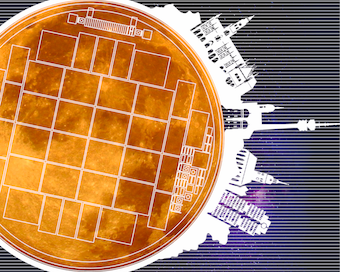Speaker
Description
One key feature of the HL-LHC outer tracker upgrade is the use of "pt modules" to reject low pt tracks and reduce the required L1 bandwidth. These consist of two closely spaced silicon layers which are capable of creating "stubs", which are pairs of hits compatible with tracks above a certain pt threshold. These modules are divided into the "PS" and "2S" types, and are designed to work in conjunction to reject tracks below 2 GeV at the L1 trigger.
This talk will concentrate on the PS module, specifically characterizing the readout chip, the MPA. Currently available is the prototype chip, the MPA-light, which is used to test the front end circuitry. These MPA-light chips are then used in the MaPSA-light assembly test, which is composed of six MPA-light chips and a bump bonded sensor. We will present the first tests of the MaPSA-light assembly using the Fermilab Main Injector.
